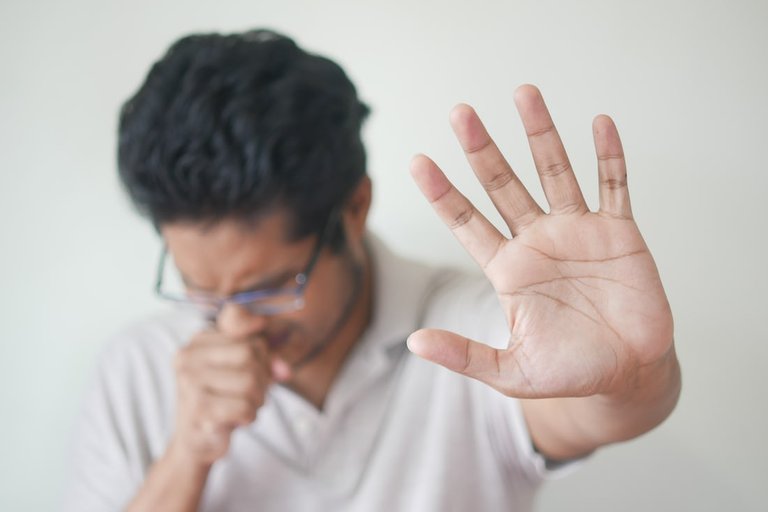Talking About Tuberculosis: What Every Person With TB Should Know
Tuberculosis (TB) is a disease caused by the bacterium Mycobacterium tuberculosis. It affects the lungs and nerves, causing a cough that can last for weeks. Untreated TB can kill within months. According to the World Health Organization (WHO), 1 of every 20 people has latent TB at any given time without knowing it. That means most people with latent TB don’t have active symptoms of the disease.
There are about 10 million new cases of TB annually — and that number is rising. Therefore, it’s important to talk about this disease if you or someone you know is infected with TB. How can talking help prevent more people from getting infected with the bacteria? Let’s discuss some facts about this stubborn sickness...
What is TB?
TB is a chronic, contagious disease caused by inhaling the bacteria that live in the air when someone with the disease coughs, sneezes, or talks. The bacteria infect the lungs, where they damage the lining of the airways and cause infections (called TB infections) in the spleen, liver, bones, and other organs.
The most common type of TB — caused by the strain of M. tuberculosis that infects about 84% of those infected — is called pulmonary TB. Pulmonary TB can cause mild symptoms or it may go undetected and lead to no symptoms.
It is more common in people with certain health conditions, such as older adults, people who use alcohol or other drugs, people with HIV/AIDS, people who abuse substances like drugs or alcohol, people who are homeless, people who live with others who have TB, people with certain types of breathing problems, and people who work in healthcare professions.

[Source](Talking About Tuberculosis: What Every Person With TB Should Know)
The symptoms of pulmonary TB may include a persistent cough, chest pain, fevers, and weight loss. Other types of TB, such as extrapulmonary TB, occur when the bacteria spread to other parts of the body, such as the spine or kidneys. Extrapulmonary TB symptoms may be similar to those of pulmonary TB. Symptoms vary from person to person and can be mild or severe.
How TB Is Spread
TB is spread when a person with the bacteria in their airways coughs, sneezes, or speaks (contact) with someone else’s airways. The bacteria can also stay in a person’s airways after they have symptoms. People infected with TB bacteria may not have symptoms. Many people who have the bacteria in their airways don’t even know they have the disease.
While in this state, they can spread TB to others. The most common way that TB is spread is when an infected person with TB coughs or sneezes. This exposes nearby people, including those with weaker immune systems, to the bacteria and puts them at risk of infection.
Other ways that TB is spread include having sex with an infected person; sharing needles, syringes, or other equipment used to inject drugs; and touching someone who has TB. People with weakened immune systems, such as those with HIV, are more likely to get TB if they are exposed to the bacteria.
Why Talking about TB is Important
Talking about TB is important for many reasons. It can help prevent the disease from spreading and can help find a cure. Giving someone who has TB antibiotics to treat the bacteria is the only way to stop the disease from spreading.
So, if you know someone with TB, talking to them about their disease can help prevent others from getting sick, too. Talking to a doctor, a nurse, a counselor, a teacher, or a family member can also help. In many communities, people with TB are not given the same respect and privacy that others are given. Talking about TB can help change this for the better.
How to Have the Talk

If you or someone you know is infected with TB, you can help prevent the disease from spreading by talking to them. Here are some tips for how to have the talk: Let them know you have TB or have been around someone with TB. Ask if they have ever been around someone who has TB or if they know someone who has TB. Keep the person healthy.
The person with TB needs to take the proper medicine to keep the bacteria from spreading. They also need to get enough rest, drink fluids, and be careful about what they eat and how they exercise. This is important because the bacteria are spread through saliva, so someone with TB also needs to take medication to prevent saliva from being spread. Keep this in mind when talking to the person.
Keep the person away from other people who have TB. If possible, stay away from people with TB. In public places, such as schools, gyms, and libraries, keep yourself away from anyone who has TB. If you are in the hospital and you know someone with TB, change rooms as soon as possible. Do not ignore the signs and symptoms of TB. Do NOT ignore a fever, weight loss, persistent cough, or shortness of breath.
Tips for When You’re Talking About TB
Be patient and kind. Being patient means you won’t get angry or frustrated easily. Being kind means you will treat the person with respect and privacy. Make the conversation a positive one. Let the person know that you are not trying to check up on them, but are just trying to be there if they need help.
Let them know they can talk to you or others about whatever they are experiencing. Let the person know they are able to take care of themselves while they are sick. Be careful about what you say. When talking about TB, you don’t want to say things that will make the person feel bad because they have the disease.

You don’t want to tell the person they are not good enough because they have TB. You don’t want to tell them they are a burden to the rest of the community. You don’t want to tell them that you don’t want them in the same room with you because they are infectious.
Final Words: Don't forget to take care of yourself
When you have TB, you need to take proper precautions to protect yourself from the bacteria. This means doing things like wearing a mask when you are around people who have TB, keeping your home and workplace clean, staying away from people who have HIV/AIDS and people who have compromised immune systems, and carefully following the treatment prescribed by a doctor.
Knowing these facts about TB can help you protect yourself and your loved ones from this stubborn illness. If one member of your family has TB, you should still practice good hygiene and take care of yourself. This means washing your hands often and disposing of trash that could be infected with TB.
If you have TB, you should also stay away from people who have weakened immune systems. You can also protect others by keeping your cough indoors, using a cough suppressant when necessary, and wearing a mask when you are around people who have TB.
• Links Consulted
(2). https://www.nhs.uk/conditions/tuberculosis-tb/
(3). https://www.webmd.com/lung/understanding-tuberculosis-basics
(4). https://www.who.int/news-room/fact-sheets/detail/tuberculosis
TB is a very contagious disease that can be transmitted from person to person. In this regard, we need to manage and care for our bodies especially if we're related to a TB patient.
Tuberculosis is really dangerous that even it leads to death
Thanks for your contribution to the STEMsocial community. Feel free to join us on discord to get to know the rest of us!
Please consider delegating to the @stemsocial account (85% of the curation rewards are returned).
Thanks for including @stemsocial as a beneficiary, which gives you stronger support.
Thank you 😊